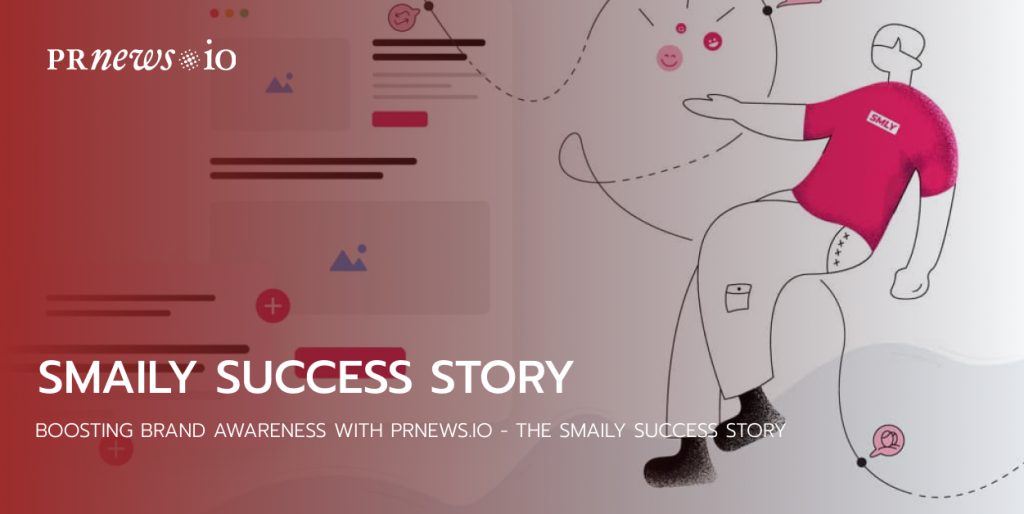If you have reached this post, you have already taken the first step forward. It’s never late to implement a content marketing strategy into your project. With a growing number of businesses reaching the web, it’s vital to work on a wise online promotion strategy. Content marketing is the best solution to get your brand noticed and talked of.
If your company hasn’t still implemented content marketing in the brand promotion strategy, you can suggest your boss start rolling it out right away. How can you convince him that content marketing is exactly what you need? In this article, we’ll give you working tips on how to write a persuasive pitch that will help you win the game.
Content Marketing Platform
- 100,000+ media publications;
- get backlinks to your product;
- scale work with content distribution.
First, Put Maximum Effort on Education
In most cases, companies do not implement content marketing strategy not because they don’t want to do it but because they know little to nothing about the way it works. When you start working on the pitch, the first thing to do is to apply the maximum effort to educate the person who will make the final decision – your boss.
It’s most likely that your boss knows about content marketing, but he didn’t dig deeper into investigating its phenomenon. To help him better understand the world of content marketing, you need to apply extra effort to educate him, explain the content marketing goals that your company may reach, reveal case studies and stats, and do other things to persuade him to make the positive decision.
Set Realistic Goals. Pitch for a Pilot Program
It may take a lot of time to tell your boss about everything related to content marketing. As you are only starting, you may not know everything about content marketing. It’s a clever move to do some testing first. Give your boss a pilot version and specify when you’ll check the first results of your content marketing campaign. As a rule, the first vivid results can be recorded in 6 months after the start.
The point here is to set realistic goals. If your company focuses on selling digital items, your goal may increase the sales rate by 10% in the first 6 months.
Make It Comprehensive
While working on your pitch, you need to mind to whom it is addressed. Like writing posts for your blog or social media channels, you need to make it comprehensive for your target user. In our case, it’s your boss.
What’s his hobby? If he enjoys playing tennis, explain the content marketing strategy compared to a tennis match. What rules should be followed, and what actions should be taken to reach the desired goals? While putting yourself in the shoes of the person who will read your pitch, you can realize if your words sound persuasive enough.
Focus on Benefits for Your Business
To make your pitch sound more convincing, you need to write it focusing on your business goals and the rewards you can get. What will we get from content marketing? It’s the first question that you will be asked. So be ready to answer it while specifying what goals you will be able to reach and how to measure return on investment (ROI). Look at the following list of suggestions regarding the marketing goals you can highlight in the pitch.
While implementing content marketing strategy, you can:
- Create brand awareness
- Establish thought leadership
- Increase the number of both marketing and sales qualified leads
- Lower customer acquisition cost
- Improve your conversion rates
- Customer engagement and retention
- Upselling
- Relevancy and Authority to improve organic ranking, traffic, and conversion
Whatever suggestions you have, the final decision will be always based on the money matter. While talking about using content marketing in your company, be ready to discuss direct and indirect ROIs with your boss.
Direct ROI
Does your content bring playing customers to your brand? The easiest way to find it out is by checking out the source where such clients come from. Do they come from your blogs posts or any of your site’s pages? How many pages of your site do they visit before they convert? Even if a user doesn’t contact you or take a different action on your site after coming across your web page for the first time, it doesn’t mean there’s no gain at all.
While interacting with your business for the first, second or third time, brand awareness is built. People will stick your brand name in their minds and refer to your company when they need your services.
While talking about the direct ROI, check the Pageviews, Backlinks, and Social Shares numbers to make your pitch more convincing.
Indirect ROI
The good thing about content marketing is that it is multi-faceted. While working on one aspect of the strategy, you can start getting results from other sources.
Every post that you share on the web includes inbound and outbound links, which help you increase your site’s authority on the web. The more websites use backlinks to your web resource, the more reputable your business looks for a client, and the higher positions in search engines your site gets.
How to Calculate Content Marketing ROI
There are three ways to calculate ROI for content marketing. Let’s take a closer look at each of them.
1) Using the standard ROI formula
It’s the most common calculation method that looks like this:
Simply adopt this to your content marketing program:
Let’s explain what elements this ROI calculation formula features:
- Profit from Content Marketing is the sales increase resulting from your content marketing strategy.
- Cost of Content Marketing is the total amount of your expenses (e.g. total cost of blog posts, ad spend, tools, etc.) from the beginning to the end of the campaign.
2) Calculating ROI on a per-sale basis
This method will come in handy to you if you don’t have a full-blown content marketing program. This ROI calculation method is recommended to be used for big contracts and those who use Google Analytics (or similar tools) for tracking the source of paying customers.
Let’s consider the following example. The cost of one post published on your blog is $100 on average. A customer reads 5 blogs posts before closing a deal worth $30,000. It means that your Content Revenue is $15,000, and the content cost is $500. The Content ROI is 30x.
3) Using Adwords value
This method will come in handy for businesses whose marketing goals are not driven by generating more sales. Using the calculation method called, which was suggested by David Meerman Scott, you can find out your return on investment if you pay for traffic.
Lets’ consider the following example. Suppose you pay $3,000 for running a content marketing campaign (including content creation, amplification, and other costs). In that case, you can determine the number of traffic from your content and divide your program cost by it. If you have 5000 unique visitors on your blog, your cost per visitor is $0.6.
Research the Market
One more question that your boss is likely to ask you about is whether other companies in the industry use content marketing for online promotion. The competition is rather tight on the web today. With a growing number of businesses launching their web resources, it’s important for your brand not to lag behind.
While researching the market, you can show your boss examples of competitors’ websites that also use content marketing. You will find it more convincing if you find examples of some big names in the industry and use stats from Ahrefs to check your competitors’ blog data.
Be Ready to Respond to Your Boss’ Doubts
Be ready that your suggestions won’t get a positive answer straight away. Your boss should take some time to weigh all pros and cons until making the final decision. So you should be ready for his objections and respond with arguments and opportunities to raise solutions.
Let’s enumerate the most common doubts your boss may have.
- We cannot afford it. Everything costs money. It’s especially true for content marketing. You should realize that content creation, running social media campaigns, using email marketing, etc. will need extra investments. However, you need to keep in mind that content marketing costs 62% less than outbound marketing, and generates three times as many leads.
- Consider using external sources. With the help of your colleagues, you can get valuable insights on the most common questions and issues that your customers have. Use them as the topics for your blog posts. It will help you appeal to your customer’s needs and drive more traffic to your blog.
- Ask freelancers for help. If your boss doesn’t want your staff to do the designing and copywriting job because it will take a lot of time, you can always suggest looking for freelancers. Some many content makers and designers are ready to help you at an affordable fee. It will cost less, and your company will still have unique and engaging blog posts.
- Focus on savings. It’s always a win-win solution to highlight where and how your company can save. For example, content marketing costs less than paid search. Moreover, it lets you increase organic traffic.
- We can’t share the insights of our company. And you don’t have to. Content marketing is not about showing the inner kitchen of your brand. It’s about educating the audience while showing your example or posting a success story on your blog. There is no reason to be afraid about sharing your experience with the web community. Vice versa, 73% of B2B marketers publish case studies, thus providing the potential clients with helpful content and increasing traffic flow to their sites.
- You may also suggest your boss get professional help with promoting your content using content marketing platforms like PRNEWS.IO. They will help you publish your marketing materials on selected websites and media portals, thus reaching out to a wider audience and driving your company’s maximum return on investment. It’s free to sign up and take the first steps promoting your content. Spreading the word about your company to 200+ companies will be easier with the help of expert PR agents.
Present Content Marketing Calendar
Be ready to present your content marketing plan before your boss asks about it. While you are getting prepared for the presentation, here are some major considerations that you cannot miss.
- Align content marketing objectives with your business goals. Will it help you increase brand awareness, help you establish better contact with the target audience, and improve your lead generation results?
- Explain the implementation process. Who, how, and when will take care of running marketing tasks?
- Suggest how often new articles will be published on your blog.
- Speak about the types of content that you’s like to share on your blog. Should it be purely educational content? Are you interested in publishing eBooks, case studies, or infographics on your blog?
- How do you plan to reach the target audience once the content is published on your blog? Will you ask influencers and bloggers for help?
- How will you measure the success of your content marketing strategy? Speak about the tools and metrics that you will use.
What is a Content Calendar & How to Create It: Templates, Tools, Ideas
Do You Still Get “No” for an Answer?
Even if your boss still doesn’t agree to implement content marketing, you shouldn’t give up. Everything is changing in the world, and one day he will wake up and realize that a wise content marketing strategy is exactly what your company is missing. He will come to this decision even sooner when he finds out that 60% of marketers assume that content marketing is the top inbound marketing priority of the biggest plaster in the online world.
Even if he says “no,” you may rest assured you did your best and planted the idea of content marketing in your boss’ mind.





